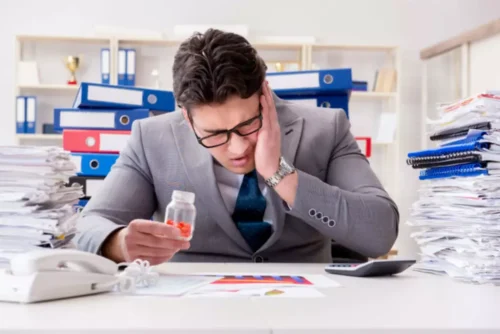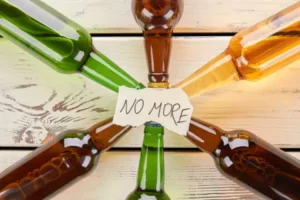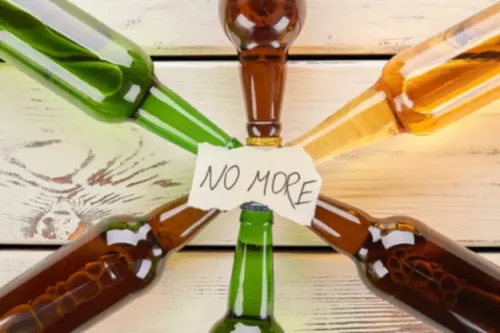Short- and Long-term Ecstasy Effects

A large observational study from 2022 found that MDMA use was connected to a lower risk of depression, and they advise further study to see if this is a true association. However, side effects and intensity may vary with larger doses. The main psychedelic effects of MDMA can last for an average of 3 hours. But it may take up to 40 hours to fully clear from your system.
- In some individuals, users become aggressive and struggle with insomnia, significant decrease in appetite, memory loss and difficulty concentrating.
- They found that most participants experienced improvements in their mood, emotional control, memory, and relationships.
- It’s important to know that the effects of ecstasy will be different from person to person.
- People typically use MDMA in social settings, at parties, or at music festivals to enhance mood and increase sociability and sensation.
Fast facts on MDMA
Researchers note larger phase 3 studies should be completed, but those with PSTD should NOT use MDMA on their own to try to replicate these results. Adolescents and young adults use it to reduce inhibitions and to promote feeling of euphoria (great happiness, excitement, „high“), feelings of closeness, empathy, and sexuality. Ecstasy can also produce psychedelic effects, similar to the hallucinogens mescaline and LSD. Molly is slang for ‘molecular’ and refers to the crystalline powder form of this drug. Ecstasy users take the drug orally as a tablet, pill, or capsule. Treatment for stimulant use disorder can occur in different settings (inpatient or outpatient) and the recovery journey will involve various therapeutic approaches.
What if I use other drugs or alcohol together with MDMA?
Before and during your time on ecstasy, drink one 16-ounce bottle of water for every hour that passes while on the drug. This will stop you from getting dehydrated and possibly fainting or feeling lightheaded. People with heart problems can be at risk when using ecstasy and especially when taken in high doses. As the effects begin to fade, people often take another dose of ecstasy to double the time it lasts. Exploration of MDMA-assisted therapy for PTSD in Australia, covering the therapeutic benefits, historical use, and the process of MDMA aiding psychotherapy.
After effects
Do your research, educate yourself, and reach out to local or virtual organizations that can provide support with addiction. If you choose to take ecstasy, use it with as much precaution as possible. Educate yourself and your friends about the safety tips for ecstasy use to reduce unwanted health problems. At best, have at least one person who is going to be ecstasy-free during the session. Concerns are especially high for those who are still in middle or high school as their brains are not fully developed. A 2022 survey showed that 0.6% of eighth graders (13 years old) said they used ecstasy in the last year.

People typically use MDMA in social settings, at parties, or at music festivals to enhance mood and increase sociability and sensation. People also often use it alongside alcohol or other drugs, which may enhance the negative effects. However, the excessive serotonin release results in significant short-term depletion of serotonin in your brain. This can contribute to negative psychological aftereffects such as depression, anxiety, and fatigue, which you may experience for a few days after MDMA use. MDMA is a popular stimulant and hallucinogenic drug that can cause feelings like euphoria, sensuality, and empathy.
However, to be diagnosed with a substance use disorder, a person must meet specific diagnostic criteria for continued substance use despite negative consequences. While there are no specific treatments for ecstasy addiction, the National Institute on Drug Abuse suggests that cognitive behavioral therapy (CBT) is the most effective option. This type of intervention helps change how people think and behave to support addiction recovery. CBT also teaches people coping skills so they can better manage the stress that contributes to substance use. Ecstasy overdose symptoms can include faintness, panic attacks or extreme anxiety, high blood pressure, and seizures.

Chronic MDMA use may even occasionally cause conditions like psychosis ― though other psychiatric conditions arising how long does mdma stay in body from using MDMA are rare. An early study published in 2000 explored the literature on long-term cognitive effects of recreational ecstasy use. The drug’s rewarding effects vary with the individual taking it, the dose taken, purity of the MDMA, and the environment in which it is taken.
- When people buy MDMA from dealers on the street, they do not know what they are taking.
- While research has not indicated that ecstasy is addictive, according to CAMH, it certainly can take on an exaggerated importance in lives.
- Recreational MDMA use is nonmedical, recreational use of the drug for its euphoric and mind-altering effects.
- An early study published in 2000 explored the literature on long-term cognitive effects of recreational ecstasy use.
- Just like every other drug, the effects of ecstasy vary from person to person.
Can I get addicted to Ecstasy?
MDMA, also known as ecstasy or Molly, is a synthetic psychoactive drug that acts as both a stimulant and a hallucinogen, changing mood and perception. If you or someone you love wants to change your relationship to substances like MDMA, there’s no shame in reaching out to a health professional for help. With the right support and treatment, you can learn tools to change your habits. Health experts will need to see a significant amount of research on the benefits and risks of MDMA use for health conditions before it could become a treatment option. Overall, research on the effects of chronic MDMA use is limited, and more studies in humans are needed to determine the long-term effects of this drug.

More research is needed to fully understand the effectiveness of medical MDMA. The medical use of MDMA is highly regulated and only administered by healthcare professionals in regulated settings. Ecstasy (MDMA) is designated as Schedule I substance by the DEA. Like drink-driving, driving when high is dangerous and illegal. If you’re caught driving under the influence, you may receive a heavy fine, driving ban, or prison sentence.
Find out what to do in the case of overdose or withdrawal and places to get help. People who already have mental health problems or a history of mental illness should not take MDMA. MDMA is the presumed main ingredient in an illicit drug called ecstasy. Even 2 pills that look the same might come from different sources and contain different ingredients. Because of the common myth that ecstasy is not addictive, many users deny they have a problem.
